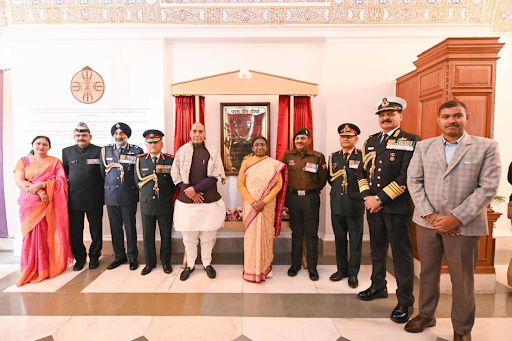Description

Copyright infringement not intended
Picture Courtesy: https://www.iasgyan.in/daily-current-affairs/section-33-of-rpa
Context: Recent developments highlight debates over election law disclosure norms: concerns arise regarding incomplete asset reporting by some candidates and the Supreme Court's acknowledgement of candidates' right to privacy in disclosure requirements.
Details
- The evolution of the law on disclosure of assets in the context of election law in India has been shaped by landmark Supreme Court judgments and subsequent legislative actions.
Supreme Court Judgment (May 2, 2002):
- The requirement for candidates to disclose criminal history, educational qualifications, assets, and liabilities (including those of spouses and dependents) arose from a significant Supreme Court judgement on May 2, 2002.
- The court emphasised that voters' right to information in a democracy is essential for them to express their opinions through their votes.
Legislative Response (August 2002)
- In response to the Supreme Court judgement, the Central government attempted to limit these disclosures by amending the Representation of the People Act, 1951.
- This led to amendments like Sections 33A (concerning disclosure of pending criminal cases) and Section 33B (restricting disclosures beyond those prescribed in the Act), which were subsequently challenged in court.
Supreme Court Ruling (March 13, 2003)
- The Supreme Court struck down Section 33B and reinstated the disclosure requirements regarding assets, liabilities, and educational qualifications.
- The Election Commission of India (ECI) then issued revised instructions and formats for disclosure based on this judgement.

Consequences of Omission or False Disclosure
- Section 125A of the Representation of the People Act, 1951, imposes penalties (a six-month prison term, fine, or both) for failure to disclose required information or providing false information.
Latest Court Rulings
- Recent court cases have highlighted the importance of accurate disclosure. For example, in a case involving the election of Karikho Kri, non-disclosure of certain movable assets led to the challenge of his election.
- The Supreme Court clarified that not every detail needs to be disclosed unless it is substantial or could affect the election outcome. The court emphasised that the disclosure should reflect aspects of a candidate's lifestyle or assets of considerable value.
About Section 33 of RPA
- Section 33 of the Representation of the People Act, 1951, outlines the process and requirements for the presentation of nomination papers by candidates seeking election.
|
Key Provisions and Restrictions
●The section aims to ensure the timely and proper submission of nomination papers by candidates.
●It outlines specific requirements for different types of elections and constituencies.
●There are restrictions on the number of constituencies a candidate can contest in to prevent overextension of candidacies.
●The provisions emphasise verification and scrutiny to maintain the integrity of the nomination process.
|
Presentation of Nomination Paper (Sub-sections 1 and 1A):
- Timing and Procedure: Candidates must submit their nomination papers to the returning officer between 11:00 AM and 3:00 PM on or before the specified date (as per section 30). The nomination paper must be completed in the prescribed format and signed by the candidate and an elector of the constituency (proposer).
- Proposer Requirement: For candidates not set up by a recognized political party, the nomination paper must be subscribed by ten proposers who are electors of the constituency.
- Public Holiday Restriction: Nomination papers cannot be delivered on a public holiday.
- Specific Requirements for Sikkim Legislative Assembly Elections: Separate requirements apply for nominations to the Legislative Assembly of Sikkim concerning the form, manner, and number of proposers and seconders, depending on the seat reserved.
Declaration for Reserved Seats (Sub-section 2)
- Candidates contesting in constituencies with reserved seats must specify their caste or tribe and the corresponding Scheduled Caste or Scheduled Tribe area.
Multiple Nomination Papers (Sub-sections 6 and 7)
- Candidates can be nominated by more than one nomination paper, but the number is restricted to four per candidate.
- Restrictions apply to the number of constituencies a candidate can contest in different types of elections (general, biennial, bye-elections) to avoid over-representation.
Conclusion
- The law on disclosure of assets in Indian election law has evolved through judicial interpretation and legislative action, aiming to balance voters' right to information with candidates' privacy rights, while ensuring transparency and accountability in electoral processes. The current principle emphasises substantial disclosures relevant to voters' decision-making without imposing unnecessary burdens on candidates.
Must Read Articles:
SECTION 33 OF RPA
CORRUPT ACT
DECLARATION OF ASSETS BY CANDIDATES
Source:
The Hindu
Indiankanoon
|
PRACTICE QUESTION
Q. The role of the Election Commission of India (ECI) has often been debated, with concerns raised about its independence and impartiality. Evaluate the constitutional provisions and safeguards related to the ECI, and discuss whether there is a need for further reforms to strengthen its autonomy and accountability. Provide a comparative analysis with election management bodies in other democracies.
|










